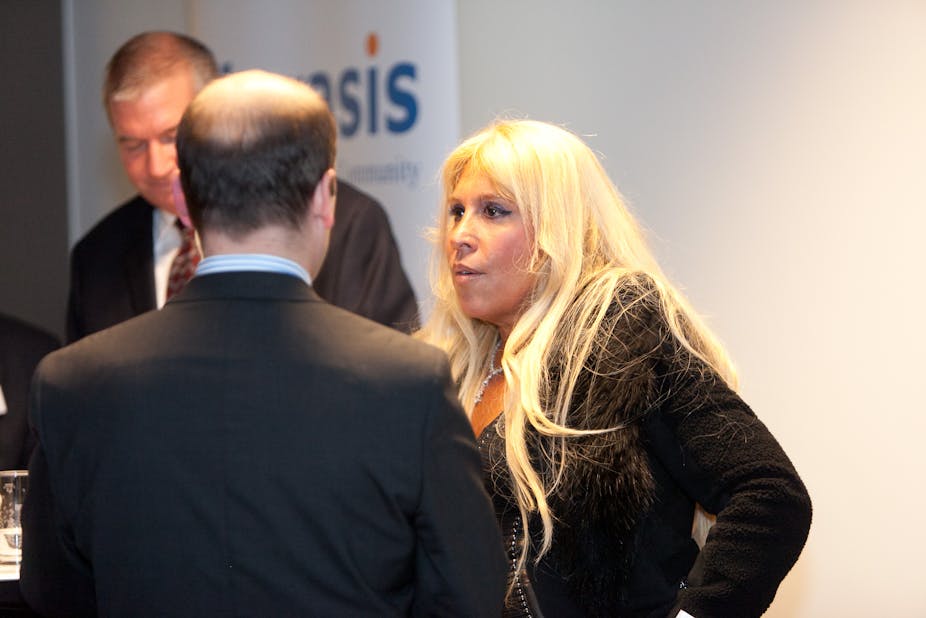US reports have recently circulated of a government probe into the hiring of former Colonel Norbert Vergez by the private equity firm Patriarch Partners, headed by billionaire “turnaround queen” and would-be reality star Lynn Tilton.
At the heart of the inquiry is a possible conflict of interest: during Vergez’s time running the US Army’s Non-Standard Rotary Wing Aircraft (NSRWA) office in Huntsville, Alabama, the NSRWA was responsible for purchasing $US186 million in helicopters from one of Tilton’s companies, MD Helicopters.
This government inquiry, paired with a looming American military intervention in Syria, raises crucial questions about the revolving door between the public and private sectors, as accomplished men and women exchange modest government paychecks for big Wall Street payouts and private-equity firms continue to invest heavily in the defence sector.
Private equity has focused considerable attention and money in recent years on government contracting generally and defence specifically, as these funds position themselves and their investors to profit from increasing expenditures.
Wall Street’s new world order can be measured by the number of senior politicians and bureaucrats who take a desk in the slightly murky world of “alternative investments” after their government service is done. It’s a thoroughly bipartisan roster.
Former Vice President Dan Quayle advises the private equity fund Cerberus, as does former Treasury Secretary John Snow. Ken Melman, who previously ran the Republican National Committee, is head of global public affairs at PE giant KKR. Former Fed chairman Alan Greenspan has served as a board member for investment management firm Paulson & Co.
On the other side of the aisle, Cathy Zoi, Obama’s undersecretary for energy, left in 2011 to form a “clean tech” fund with venture capitalist Adam Grosser at the private equity firm Silver Lake. Another Democrat, former Indiana senator Evan Bayh, joined private equity giant Apollo — which has more than $US50 billion in assets under management — as a senior advisor with a focus on public affairs.
The public-private traffic is two-way. Jeffrey Goldstein returned to private equity firm Hellman & Friedman at the end of 2011 after two years as undersecretary for domestic finance in Timothy Geithner’s Treasury Department, where Goldstein oversaw the bailouts of banks and the domestic automobile industry as well as the implementation of the Dodd-Frank Act.
In 2009, Sanjay Wagle left Vantage Point Venture Partners for a position in the Energy Department; over the next three years, over $US2 billion of government money went to fund clean energy companies in which Vantage had investments.
President Obama selected Karen Gordon Mills of private equity firm Solera Capital to head the Small Business Administration.
And after he was elected mayor of Chicago, former Obama chief-of-staff Rahm Emanuel chose a leading hedge fund manager, Michael Sacks, to be his point person for attracting new companies to the city.
The Vergez case raises many of the same concerns that have been a feature of growing economies for many, many years, and precede the rise of private equity and hedge funds as key actors in domestic and international financial markets. The role of a private equity fund here, however, is indicative both of an evolutionary change in how financial muscle is now flexed and of the need to ensure that ethics and oversight rules are drafted and enforced in such a way as to recognise this new reality.
Of course, the Justice Department will determine what influence, if any, Tilton and Patriarch Partners exerted on Vergez during the tender for the lucrative helicopter contract. Any allegations of conflicts of interest must be thoroughly and rigorously investigated in order to ensure that the credibility of military procurement is maintained.
But as Americans brace themselves for the likelihood of another costly military endeavour in the Middle East, some are arguing it’s worth casting a skeptical eye on how all private contractors profit from war-making — including those private equity firms that have invested so heavily in defence and other security-related sectors in recent years.
As private equity firms continue recruiting well-connected former government officials as lobbyists and go-betweens, the focus of oversight committees, ethics officers and investigative journalists will need to adapt in order to ensure that undue and improper influence is not exerted.
First, the structure of these funds differ significantly from traditional corporate conglomerates. As a result, more time and attention will need to be spent unwinding the layers of limited partnerships, offshore companies and co-investment vehicles that are typically used .
Second, given the significant amounts of carried interest - the “gold standard” in remuneration that is subject to tax at the lower capital gains rate - that can be earned from successful private equity investing, the temptation to “cut corners” and bend the rules may be great.
The current round of insider trading prosecutions involving hedge funds gives us an insight into how powerful such temptations can be.
The public scrutiny of private equity will continue in the months and years to come. Given its importance to the wider economy and its growing significance to government procurement, such scrutiny is only to be expected.

